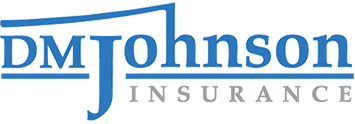Understanding the Difference: Homeowners vs. Landlord Insurance
If you own property in Connecticut, knowing the difference between homeowners insurance and landlord (rental property) insurance is essential for protecting your investment. While both policies offer vital coverage, they serve distinct purposes depending on how your property is used.
- Homeowners insurance is designed for properties you personally occupy. It covers your home, personal belongings, and provides liability protection for you and your family.
- Landlord insurance (also called rental property insurance) is tailored for properties you rent out to tenants. It protects your rental income, the building itself, and offers liability coverage for tenant-related incidents.
Key Coverage Differences
Who is covered?
- Homeowners Insurance: Owner and family
- Landlord Insurance: Property owner (landlord)
Personal property
- Homeowners Insurance: Owner’s belongings
- Landlord Insurance: Landlord’s property (not tenant’s)
Tenant’s property
- Homeowners Insurance: Not covered
- Landlord Insurance: Not covered (tenants need renters insurance)
Loss of use/rent
- Homeowners Insurance: Covers owner’s temporary relocation
- Landlord Insurance: Covers lost rental income
Liability
- Homeowners Insurance: Owner’s liability
- Landlord Insurance: Landlord’s liability for tenant claims
Cost
- Homeowners Insurance: Lower (owner-occupied)
- Landlord Insurance: Typically 25% higher (tenant-occupied)
Frequently Asked Questions
1. Do I need landlord insurance if I rent out my home?
Yes, if you rent out your property for extended periods, landlord insurance is recommended. Homeowners insurance may not cover tenant-related risks or rental income loss.
2. What if I only rent out a room or do short-term rentals?
Occasional rentals may be covered by homeowners insurance, but you might need a special endorsement. For regular or long-term rentals, landlord insurance is necessary.
3. Does landlord insurance cover my tenant’s belongings?
No. Tenants should purchase renters insurance to protect their personal property. Landlord insurance only covers the structure and the landlord’s possessions in the rental.
4. Why is landlord insurance more expensive?
Landlord insurance typically costs about 25% more than homeowners insurance due to increased risks associated with tenants and rental activities.
5. Can I require tenants to have renters insurance?
Yes, in most states, landlords can require tenants to carry renters insurance, which helps reduce liability and may lower your own insurance costs.
Choosing the Right Coverage in Connecticut
Selecting the right insurance depends on how you use your property. For owner-occupied homes, homeowners insurance is sufficient. For rental properties, landlord insurance is essential. If you’re unsure, consult a local expert in home insurance services in CT to ensure you have the right protection for your situation.
Why Trust D.M. Johnson Insurance Agency?
At D.M. Johnson Insurance Agency, we specialize in home insurance services in CT and rental property coverage. Our team helps Connecticut property owners navigate the complexities of insurance, ensuring you get tailored solutions for your needs.
Need help deciding?
Contact D.M. Johnson Insurance Agency for expert guidance on homeowners and landlord insurance. Protect your investment with the right coverage today.





